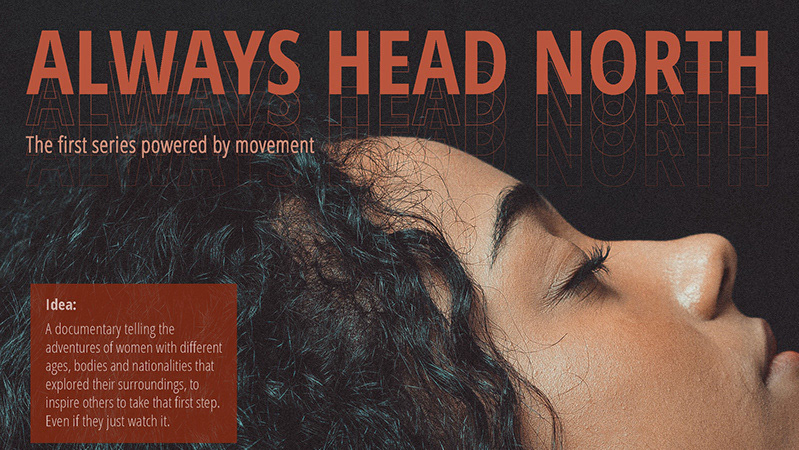The practical magic of siterhood
This year is the 20th anniversary of the widely beloved romantic comedy Practical Magic. While many fans remember the movie — which stars Sandra Bullock and Nicole Kidman as sisters who are also witches — as a funny, supernatural twist on the rom-com genre, looking back reveals a much more resonant theme: how sorority is the most powerful magic available to women specifically because of its ability to uniquely support and instill confidence in each other.
Practical Magic begins by revealing that the women in the family of sisters Sally (Bullock) and Gillian (Kidman) Owens are haunted by a curse: The men they truly love are doomed to die before their time. The curse began long ago when a relative tried to cast a spell on herself to help her avoid falling deeply in love again after going through a major heartbreak, but her powers morphed the spell into the aforementioned curse. But while most women in the family designed their lives to adhere to the curse, Gillian and Sally’s mother doesn’t, and dies of a broken heart after losing the love of her life. Her daughters are left with their two eccentric aunts, Jet (Dianne Wiest) and Frances (Stockard Channing), who are very open about their powers and teach the girls how to use their gifts.
The first message of the movie is clear: It’s impossible for anyone to stop themselves from feeling, and you’ll only end up hurting yourself even more by trying to. But then the movie delves into a gendered take on love — that between two women who unfailingly support and love each other.
From the beginning, it’s clear the Owens sisters are an unshakable unit. They are shown holding each others’ hands when they meet and try to understand their aunts, and are often shown holding on to each other, representing that they need each other for balance. Gillian and Sally help each other cope with the changes in their lives, and decide that they will end up just like their aunts, living together in the same town in which they grew up, and even promising to die on the same day. It’s no coincidence that their constant return to hand holding is one of the strongest symbols of the feminist movement; there is nothing stronger than women supporting each other, giving their hands to both support and receive help.
Though the sisters are always together, they have completely different personalities and views on their magical powers — differences that only grow more prominent as they grow older. Gillian is a extrovert who wants adventure; she loves meeting new people and falling in love. She sees her powers as a gift that deserves to be used whenever possible and ultimately decides to run away with a boyfriend and explore the world. Before she does, she makes a blood pact with her sister that she will always be there for her. Sally, who sees her gift as a burden. and rarely uses magic, stays inside the house to avoid falling in love.
Eventually, despite her efforts to avoid it, Sally becomes the victim of the curse; she loses the love of her life. Gillian senses her sister’s pain from afar. The blood pact allows each sister to feel the other’s pain, even miles apart. Gillian returns to make Sally get out of bed and move on with her life — something not even Sally’s daughters were able to convince her to do. Later, Sally saves Gillian in return. When Gillian discovers her lover is not who she thinks he is, Sally leaves everything behind, despite her typical caution, to make sure her sister is OK and take her back home. Sally does what she has to do to save her sister, which involves breaking her own vow to never interfere in the lives of others by using her magic.
After these whirlwind changes in the sisters’ lives, they form a unit once again to provide support and love they did not even know they needed. Gillian comes back to live with Sally in their town, but her outspoken persona is confronting. In an attempt to adjust to a “normal” life, Sally had chosen to hide her powers in Gillian’s absence. The town is aware, and often critical, of the Owens’ difference, and they are somewhat outcasts; Sally’s daughters are teased at school for being Owenses. But Sally still needs the approval of the school mothers to be part of the school council. This is where Gillian comes in to support and teach her sister an important lesson; she uses her powers to make sure the mothers don’t mess with her sister, which inspires a sense of confidence and that makes Sally feel lighter and even comfortable enough to join her sister in playing pranks on them. With Gillian by her side, Sally not only begins to better understand and embrace her magical talents, but also understand that she is not alone. Her sister helps give her the courage to stand up for what she wants, even in the face of a group that is averse to her.
This confidence Sally regains thanks to her sister’s encouragement is very similar to the effect that media representation more generally has gifted upon girls all over the world. When Sally is alone with the other mothers from school, she is uncomfortable with her magic because she is the only one with it. She begins to think her difference compared to the other women is a problem. But seeing Gillian, who she loves and admires, happily and freely using her powers, helps Sally realize she can use her gifts for good and that she can explore them more. Like many women around the world, Sally needed to see someone like herself in the room and, more specifically, see her difference in a positive light, to finally enjoy being different.
But the film goes beyond this purely sororial understanding of female support. Despite the tension between the women in the town and the Owenses, all the moms from school ultimately come to Sally’s aid when she needs nine woman to join in a magical ritual to save Gillian from possession by her evil ex-boyfriend’s spirit. The women go so far as to hold brooms and chant in an unknown language to come to the rescue of Gillian. There is a lot of beauty in seeing all the woman who made Sally feel bad about her gifts united in witchcraft to help her. Ultimately, however, it’s Sally’s dedication to her sister that makes saving Gillian possible. Just like in all the previous moments in which the sisters found themselves trouble, it is their joined hands that ultimately helps them survive, thanks to another blood pact involving the sisters as well as the other woman who join hands around the circle. They show the evil male spirit that she is not alone, and that he will have to take down all of them before taking her.
The tale closes with the sisters showing off their powers to a supportive crowd of townspeople during Halloween. They enjoy seeing the Owens family fly, all of them holding each others’ hands.
Link: https://www.womensmediacenter.com/fbomb/the-practical-magic-of-sisterhood
How 'GLOW' pushes back on age-old stereotypes about women in media
On the surface, the Netflix hit GLOW is a show about the making of a show — specifically, the 1980s TV show “Gorgeous Ladies of Wrestling” (G.L.O.W.) that inspired the series. But beneath this plot lies a far more interesting exploration of women’s experiences in the entertainment industry, and in the world at large, in the 1980s through a modern lens. GLOW offers viewers a critique of what entertainment we consume, how we consume it, and how we in turn often consume and stereotype the women at the center of that entertainment.
Created by Carly Mensch (Weeds, Orange Is the New Black) and Liz Flahive (Nurse Jackie, Homeland), GLOW revolves around a diverse group of women, all of whom have no experience with wrestling, but all of whom want to be on TV. The protagonist, Ruth Wilder (Alison Brie), is a struggling actress who sees in GLOW an opportunity to pursue her dreams. She does everything she can to inspire the indifferent director, Sam Sylvia (Marc Maron), not to give up on the show, including collaborating with her ex-best friend Debbie Eagan (Betty Gilpin) to make the show a success.
From the beginning, the show takes on themes like gender as a performance and questions sexist, racist, and classist stereotypes. The director is very clear about what he wants the show to be: namely girls, all of whom assume a stereotyped version of themselves in the ring, fighting each other in very tight clothes. The stereotypes the wrestlers enact in the ring reflect the same categories the entertainment industry (and society at large) impose on women on a daily basis. For example, personas like the “Welfare Queen” (Kia Stevens) and “Junk Chain” (Sydelle Noel) may be the blatantly offensive names of GLOW characters in the ring, but they are essentially the same characterizations that have been less obviously imposed on women of color characters in movies and TV shows for decades. Most of the actresses don’t question the exaggerated characters they’re asked to play because it seems they already expected this kind of treatment in the entertainment industry.
But not all of the actresses have such an accepting mindset about their characters. The moment Arthie Premkumar (Sunita Mani) puts on the costume for her wrestling persona — “Beirut,” a mad terrorist — she feels uncomfortable. Her discomfort only gets worse when, during her fight in the ring, the audience starts to react to her like she’s an actual terrorist. The crowd chants for her rival to “end” her and go wild with every punch she receives. They even go so far as to throw food and drinks in her direction — a reaction none of the other characters had gotten. Throughout Season 2, now armed with the understanding that most of the audience clearly can’t distinguish between her character and her real self, Arthie tries her best to break the stereotype of “Beirut” by exploring her other passions and making it clear that the stereotype she plays is just that.
Tammé Dawson (Kia Stevens), who plays the “Welfare Queen,” has a similar experience. Tammé is a single mother who worked hard her whole life to give her son, now a Stanford student, the best life and future she could. She appears initially to have fun with her character, but then her son comes to see a recording of the show in Season 2. He cries in response to the degrading persona his mother portrays, and Tammé starts to see how problematic it is to reiterate a demeaning stereotype of black women to an audience.
Both Arthie and Tammé eventually realize that by playing into the stereotypes already imposed on them in the entertainment industry and beyond, they are reinforcing those stereotypes to others and experience discomfort in their own lives. Accepting one’s own dehumanization, the plot suggests, is the dangerous consequence of the normalization of these stereotypes in our society.
Still, both characters stay on the show. By staying, they seem to reason, they can at least try to challenge the stereotypical characters as much as they can — especially knowing that should they leave, they would probably just be replaced with another girl willing to fill the void and keep portraying such negative representation.
In addition to exploring themes of discriminatory stereotypes and representation, GLOW also calls attention to the dichotomy of female competition vs. solidarity. The main characters of the show, Debbie and Ruth, must deal with an incident of infidelity that broke their friendship, and learn how to keep it apart from their work and ambitions that, at the time, were generally not available to women. The show allows viewers to understand both sides of the feud: We learn that Ruth slept with Debbie’s husband, Mark, while Debbie took care of her infant because she felt insecure about her career and Mark gave her attention. Debbie is rightfully devastated that her trust was broken by both her husband and her best friend, but begins to blame Ruth for every bad thing that happens in her life from that point on. This complex portrayal of both women lets the audience decide who is right or wrong — or even if neither is — and avoids stereotypes by also depicting the women putting aside their personal issues to make the show as successful as possible, reiterating the power of friendship and women supporting each other.
Even though their job is to literally fight each other, the women of GLOW form a supportive family though their experience. It doesn’t matter if someone made a terrible mistake in the past, like Ruth, or if they behave in a way society doesn’t understand, like Sheila the “She-wolf.” What matters most is their collective desire for the show to succeed, and to be the best versions of themselves. All in all, GLOW is a refreshing show that through drama and humor highlights exactly what's wrong with the entertainment industry, and how the rise of women within it has been a long time coming.
Link: https://www.womensmediacenter.com/fbomb/how-glow-pushes-back-on-age-old-stereotypes-about-women-in-media


